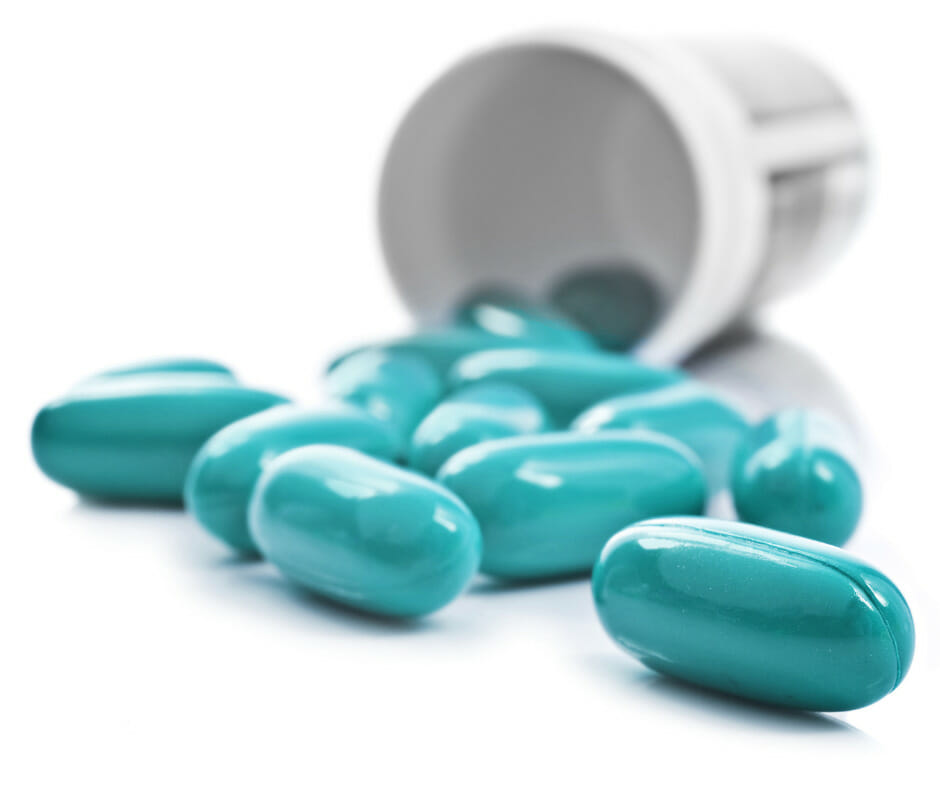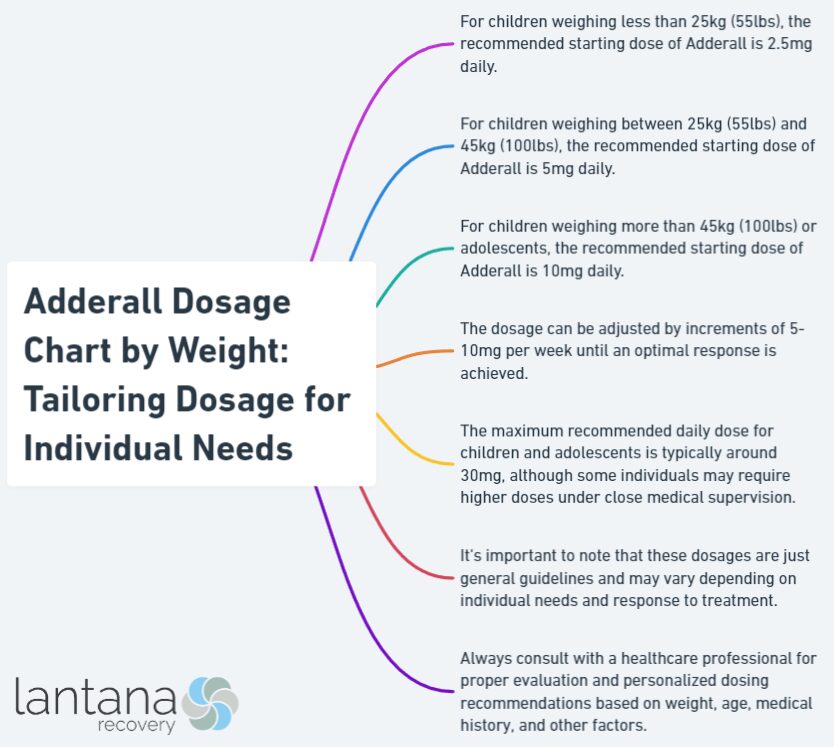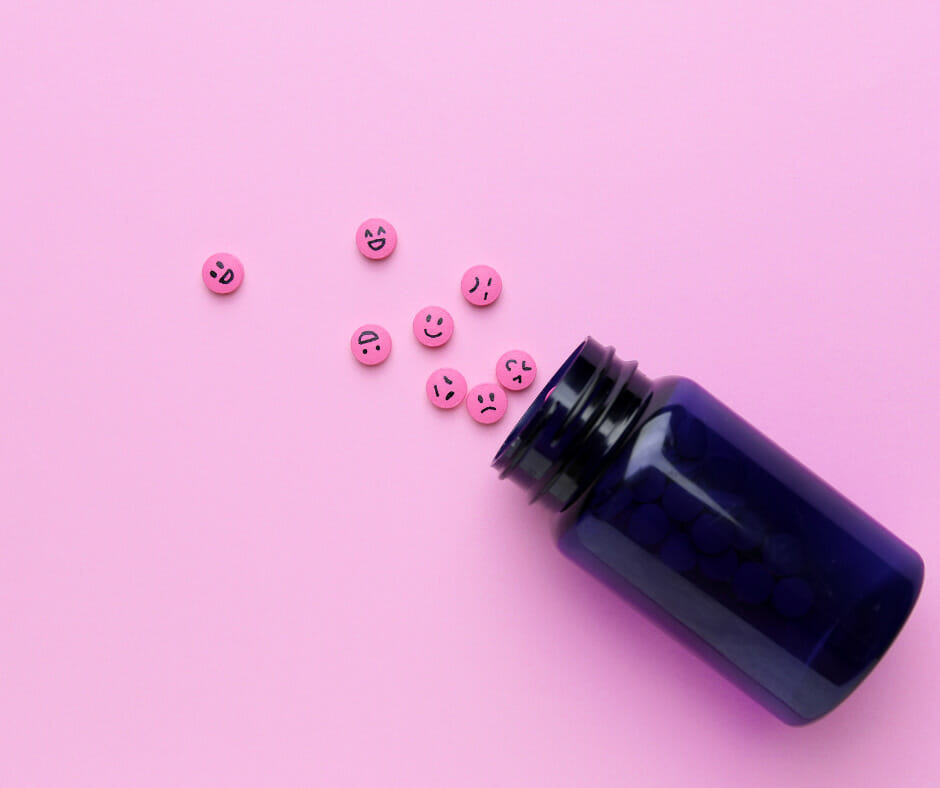Understanding the appropriate dosage of Adderall is essential for tailoring the medication to individual needs. Adderall is a prescription medication that combines amphetamine and dextroamphetamine, and it is primarily used to treat attention deficit hyperactivity disorder (ADHD) and narcolepsy. Dosage plays a crucial role in achieving optimal treatment outcomes and managing potential side effects.
Several factors influence the dosage of Adderall, including weight, age, tolerance, and individual response to medication. Weight, in particular, is a significant determining factor in the dosage calculation. Children, adolescents, and adults may have different recommended dosages based on their age group.
To ensure accurate dosage, healthcare professionals employ an Adderall dosage chart by weight. This chart outlines specific dosage recommendations for children, adolescents, and adults. Pediatric doses for children under 12 years old, adolescent doses for individuals between 12 and 17 years old, and adult doses for those 18 years old and above are all provided.
To tailor Adderall dosage to individual needs, consulting with a healthcare professional is crucial. They will consider factors such as medical history, current health status, and treatment response to determine the most appropriate starting dosage. In many cases, starting with a low dosage and gradually increasing it based on the individual’s response and tolerance is recommended.
It is important to monitor the effects of Adderall carefully and make necessary adjustments to the dosage as needed. This allows for finding the optimal balance between symptom management and minimizing potential side effects. Regular communication with healthcare professionals is essential to ensure the dosage remains effective and safe.
While Adderall can be an effective treatment, it is important to be aware of potential side effects and take precautions. Common side effects may include decreased appetite, increased heart rate, and trouble sleeping. Signs of overdose, such as severe restlessness, confusion, hallucinations, and rapid breathing, should be taken seriously and require immediate medical attention. Individuals with specific medical conditions may require additional considerations when determining Adderall dosage.
By understanding Adderall dosage and tailoring it to individual needs, effective symptom management and treatment outcomes can be achieved while minimizing potential risks. Collaboration with healthcare professionals is key to ensure safe and appropriate use of this medication.

Understanding Adderall Dosage
To have a thorough understanding of Adderall dosage, it is important to consider these factors. It is crucial to tailor the dosage according to individual needs and always seek guidance from a healthcare professional.
- Start with the lowest effective dose: It is recommended to commence with the lowest effective dose in order to reduce the occurrence of side effects. If necessary, the dosage can be gradually increased.
- Weight-based dosing: The appropriate dosage may vary based on an individual’s weight. Individuals with higher body weight may be prescribed higher doses to achieve the desired effect.
- Titration: The dosage should be adjusted over time. Healthcare professionals may evaluate the current dosage and make necessary adjustments.
- Individual response: It is important to note that different individuals may have varying responses to Adderall. Some individuals may require higher doses, while others may respond well to lower doses.
- Safety precautions: To prevent any adverse effects or misuse, it is crucial to strictly follow the prescribed dosage and avoid exceeding the recommended limits.
- Monitoring: Regular monitoring of individuals taking Adderall is of utmost importance. Healthcare professionals assess the response, monitor for side effects, and make dosage adjustments if deemed necessary.
Having a comprehensive understanding of Adderall dosage is essential for the safe and effective treatment of ADHD. Working closely with a healthcare professional is key in finding the optimal dosage for individual needs.
Adderall, which was introduced in the 1990s as a treatment for ADHD, consists of dextroamphetamine and amphetamine. Through research and clinical experience, the dosage has evolved, taking into account factors such as weight and individual response to ensure personalized treatment. The objective is to provide effective treatment while minimizing side effects. Understanding Adderall dosage is vital in managing ADHD symptoms and enhancing the quality of life for individuals with this condition.

What Is Adderall?
Adderall, a prescription drug used to treat ADHD and narcolepsy, is a combination of amphetamine and dextroamphetamine. Studies have shown that low and controlled dosages of these substances are stimulant drugs that work by increasing certain brain chemicals to assist with focus and attention in ADHD patients.
For individuals with ADHD, when taken as directed, Adderall has the ability to improve concentration, control impulsive behavior, and aid in staying focused on tasks. Additionally, it can also help individuals with narcolepsy to stay awake during the day.
Adderall is typically available in tablet form, and the appropriate dosage varies depending on factors such as weight, age, tolerance, and individual response. It is crucial to consult with a healthcare professional to determine the right dosage for an individual.
To avoid serious side effects and complications, it is important to adhere to the prescribed dosage of Adderall. Some common side effects include increased heart rate, elevated blood pressure, difficulty sleeping, loss of appetite, and irritability.
Why Is Dosage Important?
The dosage of Adderall is crucial for effective and safe treatment. It determines the amount of medication needed to achieve the desired therapeutic effect. Finding the right dosage is essential for managing symptoms and improving function in individuals with attention deficit hyperactivity disorder (ADHD) or narcolepsy.
Ensuring Optimal Treatment:
Dosage is important because it determines the medication needed to achieve the desired therapeutic effect. Finding the right dosage is essential for managing symptoms and improving function in individuals with ADHD or narcolepsy.
Striking a Balance:
Dosage is important to balance symptom management and minimize side effects. Too low of a dosage may not adequately control symptoms, while too high of a dosage can lead to undesirable effects. The right dosage aims to provide the desired effects with minimal adverse reactions.
Individual Variations:
Dosage is personalized based on factors such as age, weight, tolerance, and response to medication. Children, adolescents, and adults require different dosages due to variations in body composition and metabolism.
Maximizing Safety:
Determining the appropriate dosage is crucial for ensuring the safety of individuals using Adderall. Too high of a dosage can result in serious side effects or even overdose, while too low of a dosage may not provide the intended therapeutic benefits.
Tailoring Treatment:
Finding the right dosage often involves a process of trial and adjustment. Regular monitoring of the individual’s response to treatment helps healthcare professionals tailor the dosage to suit specific needs, optimizing the benefits of Adderall therapy.

Factors Influencing Adderall Dosage
Dosage precision is crucial when it comes to Adderall medication. In this section, we’ll delve into the various factors that influence Adderall dosage, tailoring it to individual needs. From weight and age to tolerance and response to medication, each sub-section will shed light on important considerations that can impact the optimal dosage. So, let’s navigate these key factors and discover how tailoring Adderall dosage can make a significant difference in treatment effectiveness.
Weight
Weight significantly affects the dosage of Adderall, a medication commonly used for treating attention deficit hyperactivity disorder (ADHD). To ensure effective treatment and minimize side effects, it is important to follow the prescribed dosage. The appropriate dosage is based on the individual’s weight and how the body processes the medication.
Here is a table illustrating the Adderall dosage chart based on weight:
| Weight Range | Recommended Dosage |
|---|---|
| 20-34 kg | 5-10 mg |
| 35-49 kg | 10-20 mg |
| 50-79 kg | 20-30 mg |
| 80 kg and above | 30-40 mg |
Please note that the dosage may vary based on factors such as age, tolerance, and response to the medication. Consulting with a healthcare professional is essential to determine the proper dosage for each individual. Healthcare professionals consider various factors, including weight, to tailor the dosage to specific needs.
When starting Adderall treatment, it is advisable to begin with a low dosage and gradually increase it under medical supervision. This allows for monitoring of the effects and any necessary adjustments. Adhering to the prescribed dosage and closely monitoring its effects will help ensure optimal results in managing ADHD symptoms.
Age
The administration of Adderall is influenced by age. Understanding the proper dosage for different age groups is vital for a secure and efficient treatment. Here is the Adderall dosage chart by weight for each specific age group:
- Children (6-12 years): 5-10 mg per day, with the possibility of increment
- Adolescents (12-17 years): 10-20 mg per day, with the possibility of increment
- Adults (18 years and above): 20 mg per day, with the possibility of increment to Adderall 30 mg tablets
While this table provides a general guideline, it is essential to customize the dosage according to individual requirements. Consulting with a healthcare professional who can evaluate factors such as weight, age, and tolerance is imperative in determining the appropriate dosage. Starting with a low dosage and observing its effects is crucial in finding the ideal balance.
Furthermore, it is crucial to be mindful of potential side effects, indicators of overdose, and any specific considerations for certain medical conditions.
Tolerance
Tolerance is an important consideration for Adderall dosage. Here are some key points to understand:
- Tolerance refers to the body’s reduced response to a drug over time. The same dosage of Adderall may become less effective and produce fewer desired effects.
- Tolerance can develop as the brain and body adapt to Adderall. This can happen with long-term use or consistent high doses.
- Symptoms of tolerance may include diminished therapeutic effect, increased drug cravings, and the need for higher doses.
- Adjusting the dosage or treatment plan can manage tolerance. Consult a healthcare professional for guidance.
- Gradually increasing the Adderall dosage can help manage tolerance, with professional supervision.
- Regular monitoring and dosage adjustments can maintain therapeutic effects while managing tolerance.
True story: Sarah, a college student, was prescribed Adderall for ADHD. Initially, the prescribed dosage worked well, but over time, efficacy decreased. After discussing concerns with her healthcare professional, they gradually increased her dosage. The adjusted dosage improved Sarah’s focus and concentration without significantly higher doses. Regular check-ins with her healthcare professional allowed for monitoring and necessary adjustments. This personalized approach helped Sarah find the right dosage for her needs.
Fact: According to a recent study exploring the role of genetic makeup in ADHD, “Based on the results of family and twin studies, the estimated heritability of ADHD approximates 80%, suggests a significant genetic component in the etiological background of the disorder.” (Genetics in the ADHD Clinic: How Can Genetic Testing Support the Current Clinical Practice?, Balogh et al., 2022)
Response to Medication
Taking medication, such as Adderall, requires understanding your body’s response. Consider the following factors:
- Adequate dosage: The effectiveness of Adderall varies based on the prescribed dosage. Follow recommended guidelines to ensure optimal response and avoid side effects.
- Time to response: Be patient, as it may take time for Adderall to take effect. Consult with your healthcare professional if you have concerns about the timing.
- Individual differences: Factors like metabolism and overall health can lead to unique responses to medication. Communicate any changes in response to your healthcare professional for necessary adjustments in your treatment plan.
- Monitoring effects: Regularly monitor your response to determine the medication’s effectiveness. Pay attention to changes in symptoms, mood, and well-being, and communicate these observations to your healthcare professional.
- Adjusting dosage: Your healthcare professional may need to adjust your dosage based on your response to medication. Collaborate and provide accurate feedback to ensure effective tailoring of your medication to your needs.
Remember, the response to medication can vary. Maintain open communication with your healthcare professional and actively participate in your treatment plan to achieve the best outcome with Adderall.

Tailoring Adderall Dosage for Individual Needs
Finding the right Adderall dosage is crucial for meeting individual needs. In this section, we will explore methods to tailor Adderall dosage for optimal effectiveness. From consulting with healthcare professionals to starting with a low dosage and monitoring its effects, we’ll discover strategies that can help us achieve the desired results without compromising our well-being. So, let’s dive in and learn how we can personalize our Adderall dosage for maximum benefit.
Consulting with a Healthcare Professional
Consulting with a Healthcare Professional is essential for personalized guidance on Adderall dosage. Here’s why it’s important:
- Expertise: Healthcare professionals will carefully analyze your medical history, current health condition, and medications to determine if Adderall is appropriate for you and prescribe the right dosage.
- Individualized approach: Adderall dosage varies depending on factors such as weight, age, tolerance, and response. Healthcare professionals will tailor the dosage specifically for you to ensure it is both safe and effective.
- Monitoring and adjustments: Regular monitoring is crucial in assessing the effectiveness of Adderall and identifying any potential side effects. Healthcare professionals will closely monitor your progress, make necessary adjustments to the dosage if needed, and provide continuous support.
Remember, it is vital to only take Adderall under professional supervision. Consulting a healthcare professional ensures that you receive the correct dosage and proper support for your individual needs.
Starting with a Low Dosage
When starting with a low dosage of Adderall, it is important to follow these steps to ensure safety and effectiveness. First, consult with a healthcare professional for guidance and an appropriate dosage. Inform the healthcare professional about your medical history and current medications to identify any contraindications or potential interactions.
Next, begin with the lowest recommended dosage like Adderall XR 5mg or whatever is prescribed by the healthcare professional based on your individual needs. This is typically the lowest effective dose and starting with a lower dosage helps reduce the risk of side effects. It is important to monitor the effects and side effects of the medication by paying attention to any changes in symptoms, behavior, or mood.
If any concerning or unexpected side effects occur, it is crucial to report them to the healthcare professional. Schedule follow-up appointments with the healthcare professional to discuss the effects of the medication and determine if any adjustments to the dosage are necessary. The healthcare professional will monitor your progress and make dosage recommendations accordingly.
Starting with a low Adderall dosage allows for a gradual introduction to the medication and helps determine the optimal dosage for safe and effective use. Always follow the guidance of a healthcare professional.
Monitoring Effects and Adjusting Dosage
To ensure safe and effective use of Adderall, it is crucial to monitor its effects and make necessary dosage adjustments. Here are key considerations for monitoring and adjusting the dosage:
- Regular Check-ins: Have regular check-ins with a healthcare professional to assess medication effectiveness and potential side effects.
- Observing Symptoms: Pay attention to how Adderall impacts attention, concentration, impulsivity, and hyperactivity. If significant changes or side effects occur, adjust the dosage.
- Communication with Healthcare Professional: Maintain open communication with your healthcare professional. Discuss concerns or observations regarding Adderall‘s effects for appropriate adjustments.
- Titration: Adjust dosage through a gradual process called titration, starting with a low dosage and increasing until desired therapeutic effect is achieved. This approach minimizes side effects.
- Individual Variations: Each person may respond differently to Adderall due to factors like age, weight, and tolerance. Finding the right dosage may require time and adjustments.
- Caution with Side Effects: Promptly consult with your healthcare professional if you experience concerning side effects such as chest pain, shortness of breath, or severe mood changes.
Monitoring Adderall‘s effects and adjusting the dosage under the guidance of a healthcare professional ensures its effectiveness while minimizing risks.

Potential Side Effects and Precautions
Unveiling the potential side effects and precautions of Adderall dosage tailored for individual needs. Discover the common side effects, signs of overdose, and key considerations for specific medical conditions. Buckle up as we navigate through crucial information backed by reliable sources to ensure a safe and informed usage of Adderall. Get ready to explore the intricacies and stay ahead of the game when it comes to your medication journey.
Common Side Effects
Adderall may cause common side effects. It is important to be aware of these side effects for the best treatment plan. Here are some common side effects:
- Loss of appetite: Some individuals may experience decreased appetite when taking Adderall, leading to weight loss or difficulty maintaining a healthy weight.
- Difficulty sleeping: Adderall, a stimulant, can make it difficult to fall asleep or stay asleep. Taking the medication earlier in the day can help minimize sleep disturbances.
- Increased heart rate: Adderall can raise heart rate and blood pressure. Individuals with pre-existing heart conditions should use caution when taking this medication.
- Dry mouth: Adderall may cause dry mouth. Staying hydrated and using sugar-free gum or mints can help alleviate this side effect.
- Irritability or mood swings: Some individuals may experience irritability or changes in mood while taking Adderall. It is important to notify a healthcare professional of any mood changes.
It is important to remember that not everyone will experience these side effects. If any side effects persist or worsen, consult a healthcare professional for further guidance.
Fact: According to a study published in Molecular Psychiatry, the most common side effects of Adderall include loss of appetite, insomnia, and dry mouth.
Signs of Overdose
Recognizing signs of an Adderall overdose is crucial for identifying a potentially dangerous situation and seeking immediate medical attention. Signs that may indicate an overdose include elevated body temperature, rapid heartbeat, severe headache, vomiting and nausea, and agitation and restlessness. It is important to note that these signs may vary in intensity and can be different for each individual. If you suspect an Adderall overdose or observe these symptoms, it is crucial to seek immediate medical attention to prevent further complications or harm.
Considerations for Specific Medical Conditions
When using Adderall for specific medical conditions, it is important to:
- Consult with a healthcare professional: Before starting or changing the dosage of Adderall, consult with a healthcare professional. They can assess your condition and guide you on the appropriate dosage.
- Understand potential interactions: Inform your healthcare provider if you have any existing medical conditions or are taking other medications. Adderall may interact with certain medical conditions or medications, potentially requiring dosage adjustments.
- Monitor for side effects: Pay attention to any potential side effects while taking Adderall. Specific medical conditions may increase the risk of certain side effects, so it is important to promptly report any adverse effects to a healthcare professional.
- Consider individual responsiveness: Each person may respond differently to Adderall, including those with specific medical conditions. Monitor the medication’s effectiveness closely and make any necessary dosage adjustments based on the individual’s unique response.
Fact: Always use Adderall according to the prescribed dosage and under the guidance of a healthcare professional to ensure safe and effective treatment for specific medical conditions.
Frequently Asked Questions
What is Adderall and how does it work?
Adderall is a medication that belongs to the drug class of CNS stimulants. It is a combination of dextroamphetamine saccharate, amphetamine aspartate monohydrate, dextroamphetamine sulfate, and amphetamine sulfate. Adderall works by increasing the levels of certain chemicals in the brain that help improve attention and reduce impulsiveness and hyperactivity.
What is the lowest effective dosage for Adderall?
Amphetamines, including Adderall, should be administered at the lowest effective dosage. The dosage is individually adjusted according to the patient’s response. It is important to start with a low dose and gradually increase it until the desired therapeutic effect is achieved.
What is the usual dose range for Adderall?
The usual dose range for Adderall depends on the condition being treated. For children with ADHD, the starting dose is typically 2.5 mg to 5 mg daily, and it can be increased weekly until an optimal response is achieved. For patients with narcolepsy, the usual dose ranges from 5 mg to 60 mg per day, divided into multiple doses. However, the exact dosage should be determined by the prescribing healthcare professional based on individual needs.
Is Adderall safe and non-addictive?
Adderall has a high potential for abuse, and misuse can lead to serious cardiovascular adverse reactions and even sudden death. It is important to take Adderall only as prescribed and to follow the recommended dosage. Adderall should be prescribed and dispensed sparingly to minimize the risk of abuse. It is a controlled substance that can be addictive, and lead to withdrawal symptoms that can be treated at an outpatient drug treatment facility.
What are the inactive ingredients in Adderall XR capsules?
The inactive ingredients in Adderall XR capsules include gelatin capsules, hydroxypropyl methylcellulose, methacrylic acid copolymer, opadry beige, sugar spheres, talc, and triethyl citrate. The capsules are also colored with FD&C Blue #2, red iron oxide, and yellow iron oxide, depending on the strength.
Can Adderall XR be taken once daily in an extended-release formulation?
Yes, Adderall XR is an extended-release formulation of amphetamines, which means it releases the medication slowly over time. This allows for once-daily dosing, providing continuous symptom control throughout the day. However, the dosage and dosing schedule should be determined by the prescribing healthcare professional based on individual needs.









